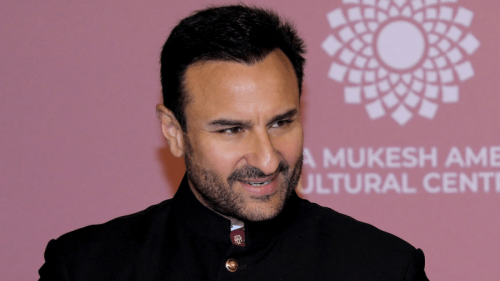ISLAMABAD: Justice Mohammad Ali Mazhar enjoys a good command over the law, has a good demeanour and his dispensation of justice is appreciable, Chief Justice of Pakistan (CJP) Gulzar Ahmed said in his observations about the Sindh High Court (SHC) judge during the July 28 meeting of the Judicial Commission of Pakistan (JCP).
The JCP approved the elevation of Justice Mazhar, a junior SHC judge, to the Supreme Court by a majority of five to four. The commission observed that since the nominee’s performance had been much better than that of his senior colleagues, he was the most suitable candidate to be elevated as judge of the Supreme Court, an informed source told Dawn on Monday.
But retired Justice Dost Mohammad Khan, a former Supreme Court judge and current member of the JCP, emphasised that the principle of seniority laid down in the 1996 Al-Jihad Trust case be followed.
He said that since SHC Chief Justice Ahmed Ali Shaikh had been running the judicial set-up in Sindh efficiently for the last four years, he should not be ignored unless there was anything serious against him or a reference was under consideration for his disqualification.
Justice Shaikh had decided more cases during his tenure than the nominee judge, Justice Dost pointed out. He also drew the members’ attention to the protests by bar associations across the country.
Justice Maqbool Baqar, another JCP member, called for reconsideration of Justice Mazhar’s nomination. “If we assume that seniority is not the sole criterion, there should be some structured discretion and criteria for superseding four persons, especially when there is no question mark on the integrity and conduct of other judges,” Justice Baqar said in his observation.
The highest number of cases had been disposed of by Justice Aqeel Ahmed Abbasi in the Sindh High Court, followed by Justice Irfan Saadat Khan and the Chief Justice himself, Justice Baqar said.
“Therefore it will be an injustice with Justice Mazhar to elevate him to the apex court since he has a good chance to become the high court’s chief justice,” Justice Baqar said.
Justice Qazi Faez Isa stated that although the Supreme Court was not a dumping ground, it was also not “a manipulative ground”, describing the elevation of Justice Mazhar as unjustified since he was fifth in the seniority list. Moreover, Justice Isa said, the nominee had not authored a single judgement that could be regarded as outstanding.
No shortcomings had ever been pointed out about the four judges being bypassed, Justice Isa observed.
He further said the nominee would suffer since he would lose the chance of becoming the SHC chief justice.
Justice Umar Ata Bandial reminded the participants that the 2002 Supreme Court Bar Association (SCBA) case had a list of 25 serving judges of high courts who had superseded their seniors for appointment to the apex court.
The Supreme Court has a backlog of 50,000 cases but has only 17 judges, Justice Bandial said. “Since Chief Justice Gulzar Ahmed, Justice Mushir Alam and Justice Maqbool Baqar are due for retirement in the near future, we need judges in the Supreme Court who have the competence, commitment and capacity to devote long hours,” the judge said.
Justice Bandial also cited the number of “best judgements”, saying the maximum of 111 judgements had been delivered by Justice Aqeel Ahmed Abbasi and Justice Mazhar.
He pointed out that there were 6,000 tax cases pending in the SHC in which stay orders against recovery exceeded six months. Hence the high court’s chief justice had constituted a special division bench to expedite these cases, but Justice Abbasi disapproved of the move and made adverse remarks in the court.
Highlighting the virtue of tolerance, Justice Bandial said there was no complaint about Justice Mazhar’s temperament, adding that the JCP must be “objective and fair and adhere to the principle of bringing the finest material to the Supreme Court. Unless there is a serious flaw, illegality, disregard of salient consideration in the nomination, minor objections should not be raised that may affect the dignity of the apex court”.
Law Minister Dr Farogh Naseem said there were so many instances where junior judges from high courts were elevated to the Supreme Court while their seniors were elevated later.
Although the 19th Amendment clearly states that the most senior judge should become the Chief Justice of Pakistan, the framers of the Constitution did not stipulate similar provisions for elevation to the Supreme Court from the high courts, the law minister said.
He opposed the idea of specifying reasons for nominating a junior judge to the Supreme Court.
Attorney General Khalid Jawed Khan said the 2002 judgement had not laid down that seniority must be the sole determining factor for elevation, adding that the seniority-cum-fitness principle was valid for the judiciary, the civil service and the armed forces.
Advocate Akhtar Hussain, the Pakistan Bar Council’s representative, suggested that since there was opposition to the nomination of Justice Mazhar, the matter be deferred for the time being.
Published in Dawn, August 3rd, 2021
















































